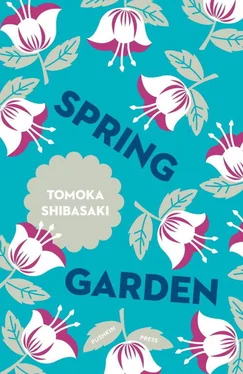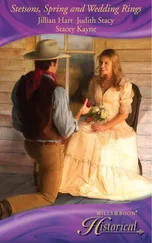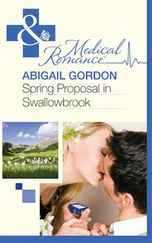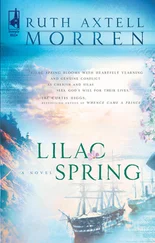Tomoka Shibasaki - Spring Garden
Здесь есть возможность читать онлайн «Tomoka Shibasaki - Spring Garden» весь текст электронной книги совершенно бесплатно (целиком полную версию без сокращений). В некоторых случаях можно слушать аудио, скачать через торрент в формате fb2 и присутствует краткое содержание. Город: London, Год выпуска: 2017, ISBN: 2017, Издательство: Pushkin Press, Жанр: Современная проза, на английском языке. Описание произведения, (предисловие) а так же отзывы посетителей доступны на портале библиотеки ЛибКат.
- Название:Spring Garden
- Автор:
- Издательство:Pushkin Press
- Жанр:
- Год:2017
- Город:London
- ISBN:978-1-78227-273-1
- Рейтинг книги:4 / 5. Голосов: 1
-
Избранное:Добавить в избранное
- Отзывы:
-
Ваша оценка:
- 80
- 1
- 2
- 3
- 4
- 5
Spring Garden: краткое содержание, описание и аннотация
Предлагаем к чтению аннотацию, описание, краткое содержание или предисловие (зависит от того, что написал сам автор книги «Spring Garden»). Если вы не нашли необходимую информацию о книге — напишите в комментариях, мы постараемся отыскать её.
Spring Garden — читать онлайн бесплатно полную книгу (весь текст) целиком
Ниже представлен текст книги, разбитый по страницам. Система сохранения места последней прочитанной страницы, позволяет с удобством читать онлайн бесплатно книгу «Spring Garden», без необходимости каждый раз заново искать на чём Вы остановились. Поставьте закладку, и сможете в любой момент перейти на страницу, на которой закончили чтение.
Интервал:
Закладка:
Stuffing my hand down between the arm and the seat of the chair, I brushed against something hard. I dug it out, and a small white object like a pebble fell onto the floor. It was a tooth—a baby tooth, with no roots. It looked like a front tooth, but whether it was top or bottom, and what number it was, I had no idea.
I remembered something people used to say when I was a kid: throw your bottom teeth into the sky, and bury your top ones in the ground. It definitely could have been a top tooth, and even if it was a bottom one, I figured that if I threw it into the sky it would come tumbling down anyway, so I decided to bury it, and stepped outside to find a good place. The daytime had been freezing cold and the wind strong enough to knock over the bicycles parked in the street, but the evening air was very mild.
When I’d looked at the weather forecast earlier that evening, it had showed that the temperature in Tokyo was almost ten degrees different from that in Osaka. The line dividing the cold of a few hours ago from this warm air must have moved over the place where I was now, midway between those two cities.
I left my apartment and walked down the hill. For a long time, I’d fantasized about living in a place with a hill. I liked the sound of it, and that was in fact why I’d chosen my current flat. The hill even had a flight of steps in the middle. When the person from the estate agency had first brought me here, I’d thought that flight of steps strangely touching. It had seemed to me like something right out of a comic book.
Going down the hill, I remembered Nishi’s latest comic strip, which Taro had turned me on to. The frames had popped up one by one on the screen of my laptop. The strip recounted a Chinese folk tale about a heavy-drinking fisherman who shared his saké with the river and had his kindness repaid by the ghost of someone who had drowned there, updated and set in modern-day Tokyo. Nishi’s illustrations were cute. Her people were often a bit snake-like.
Walking beside a bus lane, I passed someone going the other way with their dog. It was a kind of dog I’d never seen before. Its face looked like that of a collie, but its body was small, and it had short legs.
Its owner was talking to it the whole way. “Are you tired? Can you keep going? Do you want to go home? No, you want to keep walking, do you?”
Six hours after I went out to find a place to bury the tooth, Taro climbed over the railing of his balcony and entered the courtyard with the no entry sign. It seemed as though the wind had finally died down. He’d turned off the lights in his flat before coming out, so he had to squint in order to see in the darkness. He piled up the concrete blocks that were placed in the corner of the courtyard and used them to get a leg up onto the wall. On his back, he carried a cloth bag with the things he needed, a strap over each of his shoulders. With a foot against the wall, he turned around and saw that there was one flat with its lights on—the second from the left on the first floor. Taro had seen Mrs Snake at lunchtime that day, for the first time in two weeks. She had been to the exhibition Taro had given her the ticket for, and had been given a special prize for being the 10,000th visitor. She seemed really pleased about this, which also made Taro pleased. Would she be awake at a time like this? Maybe she was the opposite of Taro, and couldn’t sleep unless the lights were on.
Taro climbed over the wall, and came down on the side of the sky-blue house. The palms of his hands stung slightly where he’d scraped them on the dried vines that were now all that remained of the ivy. He walked slowly along the gap between the wall and the house. The gravel crunched beneath his feet.
When he came out into the garden, the sky yawned wide above him. Several stars were twinkling. Lit up from below by the lights of the city, the clouds that had come blowing in from the west were a hazy white.
Clouds at night didn’t invite Taro’s vision of climbing on top of the clouds, either. Rather, they made him think of a photograph that an astronaut living on a space station had posted on Twitter. The surface of the earth at night, seen from the darkness of space, was like a map rendered in particles of light. This city where Taro was now would have been a great big cluster of those particles. Taro found it impossible to believe that the lights of this place where he now was could be seen from so far away. He remembered being stunned when he’d read in a book as a kid that if you made a model of the globe with a diameter of two metres, and accurately represented the contours of its surface, even Everest would only be as high as a thick coating of paint. The idea, then, that you could see the lights of this city from space, this city that was really no more than a blip on the earth’s surface, seemed unthinkable.
A view he’d once seen from a plane window floated into his mind: floating in a sea of darkness, little clusters of lights. The lights marked the towns where people lived.
The moon had already sunk from view, but there was a streetlight just beyond the wall of the house, so the garden was bright enough for his digging. It felt big. The twisted branches of the crepe myrtle, which had not yet come into leaf, cast shadows on the ground. Taro crouched in front of the plum tree. He had slipped the garden trowel he’d bought in the DIY shop into the back pocket of his jeans. He stuck the trowel into the ground that was littered with plum petals, and began digging the soil. It was faintly warm. When he had been digging for about ten minutes, the end of his trowel hit something hard. Taro brushed away the earth with his hand, and dug around the thing carefully.
It was a stone. A round stone, about the size of an egg. There were lots of them. He kept unearthing stone after stone of almost the same shape. By the time there were none left for him to dig, there was a heap of them on the edge of his hole.
Where the stones had been, Taro laid the mortar and pestle and the potter wasp’s nest he’d brought from his flat. With his bare hands he scooped up the soft soil he’d dug up and let it fall onto the objects in the hole. Once the mortar and pestle and the wasp nest were no longer visible, he returned the rest of the soil with the trowel.
Taro wished he’d asked his father if he’d ever been to Tokyo, but he couldn’t think of a time when there would have been a chance to ask him that kind of thing. He definitely remembered his dad saying that he liked plum trees, though. He’d said that he much preferred plum blossoms to the cherry blossoms that everyone in Japan made such a big fuss about. Taro had agreed with him, and his father had said that was “unlike him”. At the time, Taro had thought that his father meant that it was unlike Taro to agree with him, but maybe that hadn’t been what he’d been trying to say. Perhaps he was saying that it was unlike Taro to own up to liking flowers, or unlike him to give an opinion at all. From now on, Taro thought, he wouldn’t have the sight of the mortar and pestle to remind him of his father. He’d have to remember him at other times. That probably made sense. After all, his father had never even laid eyes on that mortar and pestle.
When Taro brought his face up close to the slightly smaller tree alongside the plum, he saw that buds were beginning to form on its branches. It was the Hall crabapple Nishi had spoken of. At first he’d found its name a bit cumbersome, but now he could remember it, along with an image of its deep pink-coloured blossoms as they appeared in the illustrated guide to plants Mrs Snake had given him.
Nishi wouldn’t be able to see it in bloom this year, but he would. He could take a photo of it and send it to her.
The window facing the balcony on the first floor was reflecting the dawn sky.
Читать дальшеИнтервал:
Закладка:
Похожие книги на «Spring Garden»
Представляем Вашему вниманию похожие книги на «Spring Garden» списком для выбора. Мы отобрали схожую по названию и смыслу литературу в надежде предоставить читателям больше вариантов отыскать новые, интересные, ещё непрочитанные произведения.
Обсуждение, отзывы о книге «Spring Garden» и просто собственные мнения читателей. Оставьте ваши комментарии, напишите, что Вы думаете о произведении, его смысле или главных героях. Укажите что конкретно понравилось, а что нет, и почему Вы так считаете.












